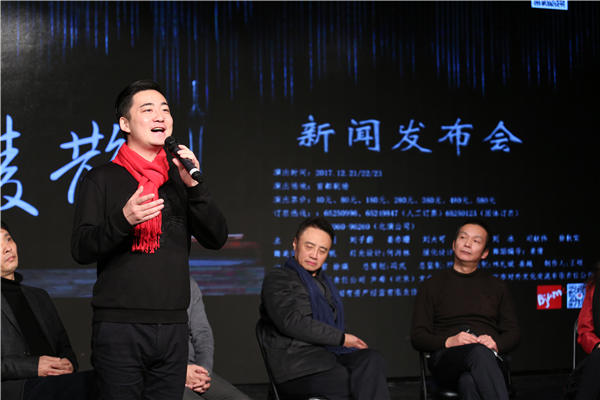 |
|
Peking Opera performer Liu Bing, who will play in the upcoming drama, sings at a Beijing promotional event. [Photo provided to China Daily] |
Guanglingsan is one of the most important pieces in Chinese music history for guqin, a plucked seven-string Chinese instrument from the zither family with a history of more than 3,000 years. It is closely related to Ji Kang, a celebrated Chinese scholar, musician and poet from the Western Jin Dynasty (265-316).
Ji was known as one of the Seven Sages of the Bamboo Grove, a group of Chinese scholars, writers and musicians of the Wei (220-265) and Jin (265-420) dynasties.
When he turned 40, Ji refused to work as an official for the court and was framed and sentenced to death.
Before his execution, Ji played Guanglingsan and since then, the piece has become legendary and it is said that the piece died with Ji since no one could play it as well as him.
The story of Ji and the Seven Sages of the Bamboo Grove has been adapted into a drama, titled Guanglingsan, by veteran theater producer and scriptwriter Xu Ying.
On Dec 21, the drama will premiere at Beijing's Capital Theater, and run for tow more days.
About five years ago, Xu initiated the idea of turning the story of Ji and the Seven Sages of the Bamboo Grove into an opera by collaborating with the National Center for the Performing Arts. However, NCPA commissioned Xu to write another opera instead, which was based on Chinese writer Lao She's famous work, Rickshaw Boy.
The opera, also titled Rickshaw Boy, was successful but Xu did not give up his idea of telling the story of Ji and the Seven Sages of the Bamboo Grove.
Earlier this year, Xu fulfilled his idea of producing the drama, which he says "is a much more suitable way to tell the story".